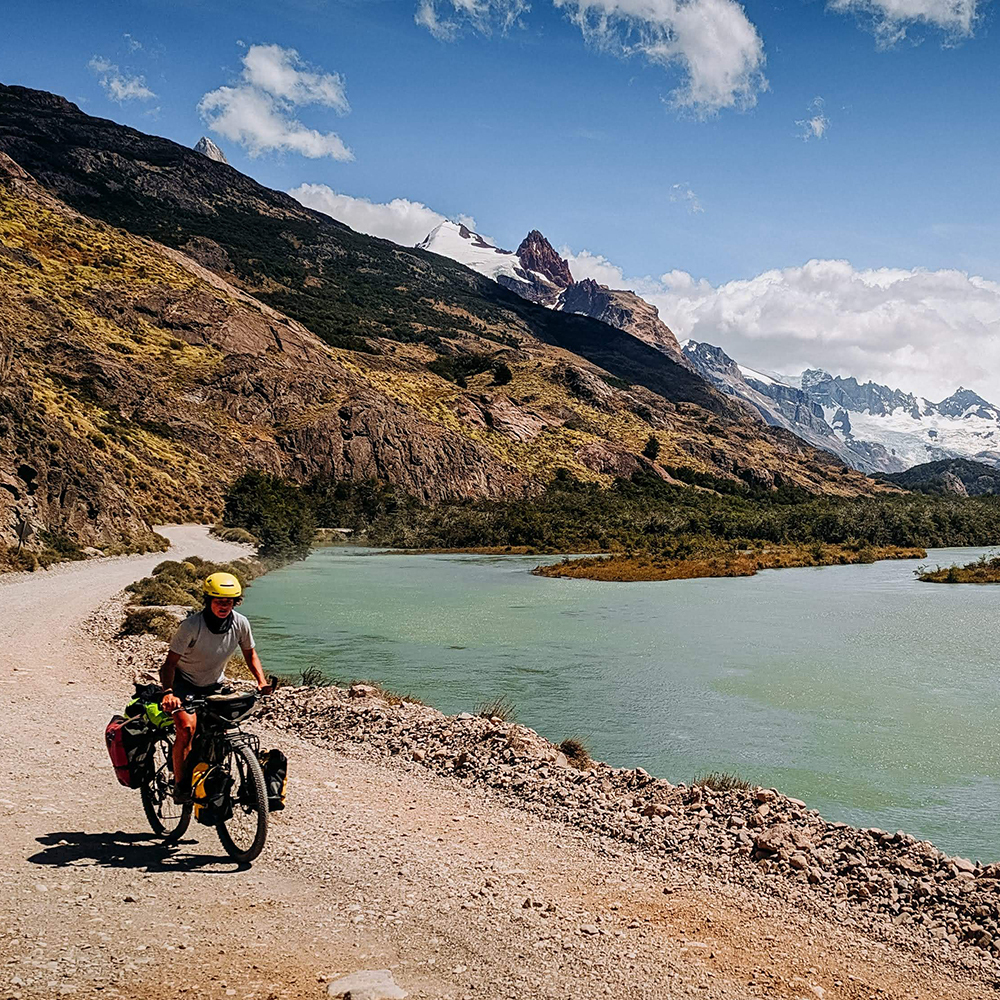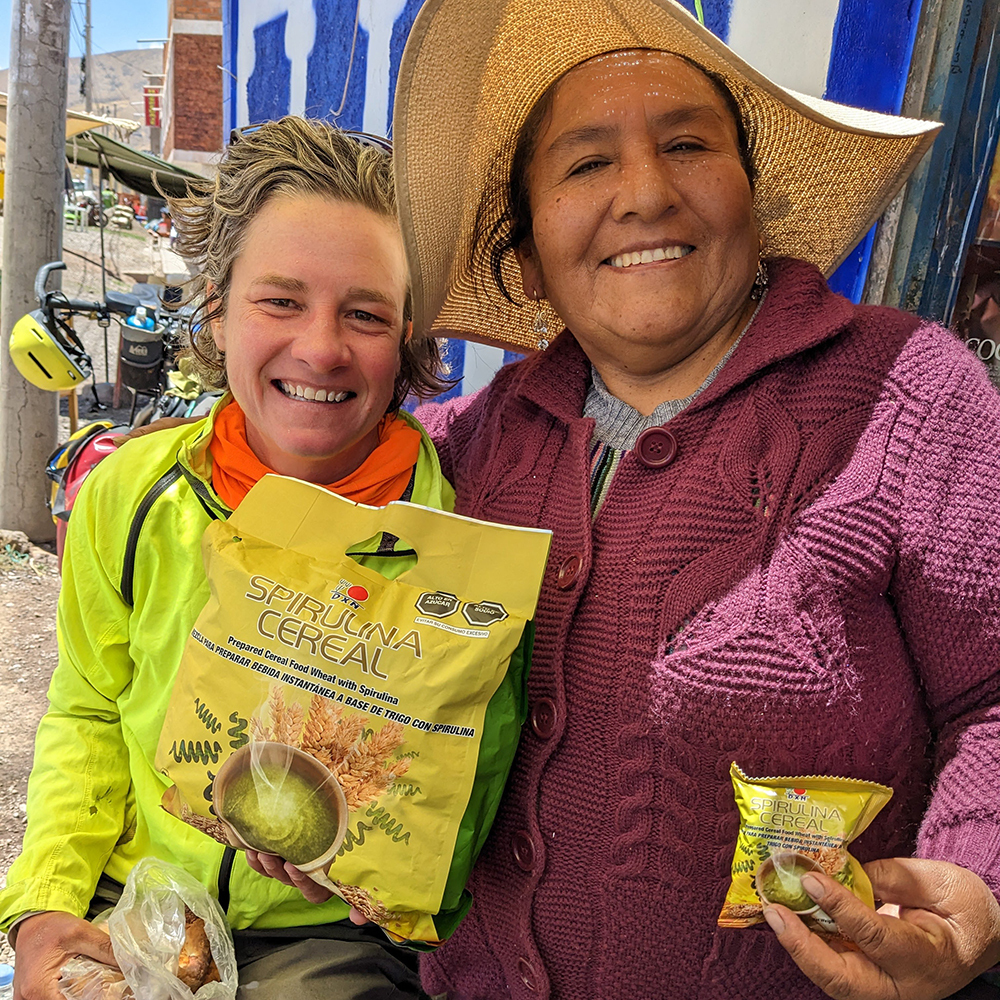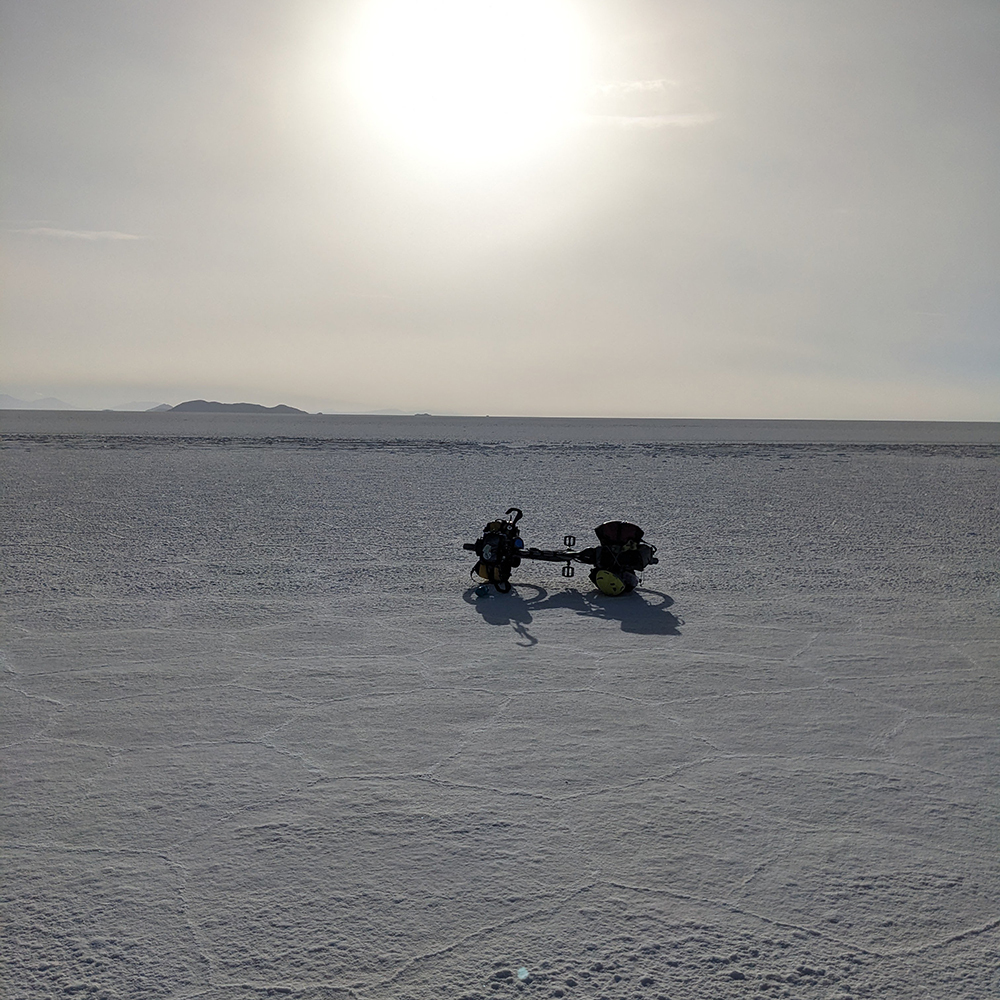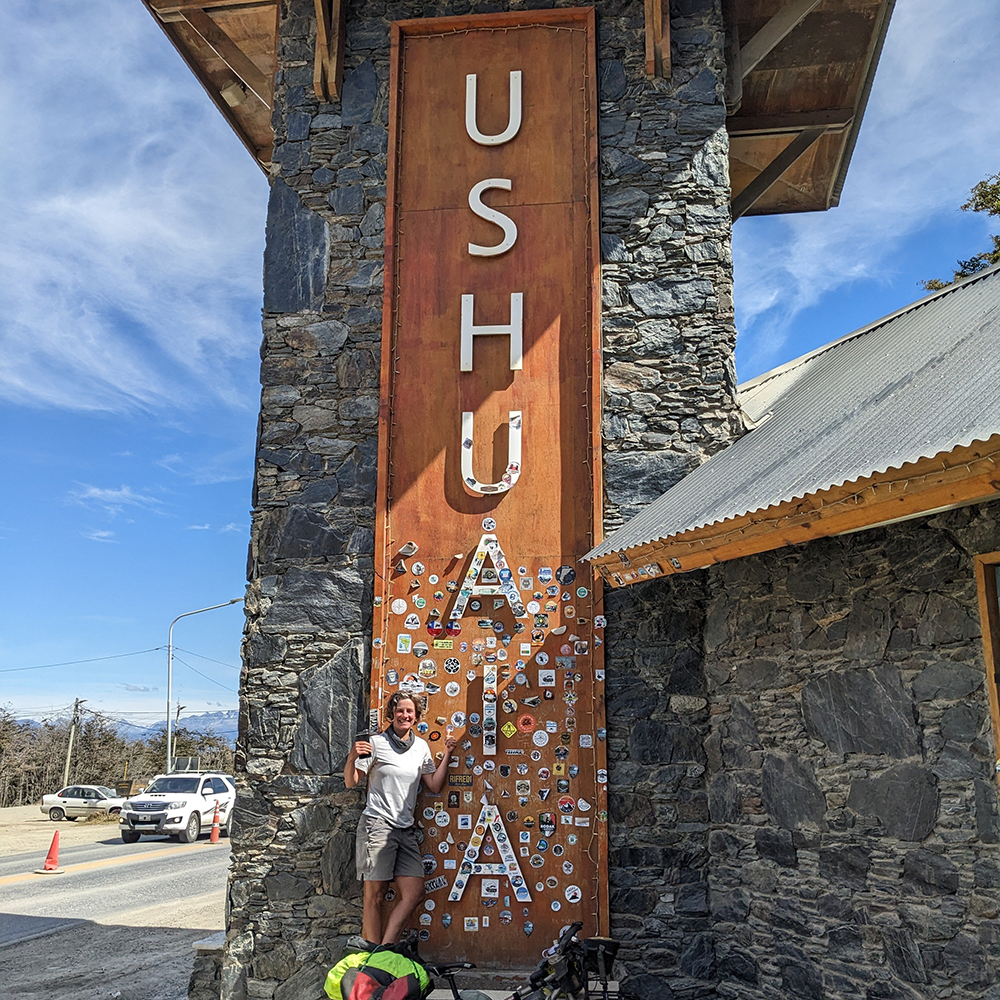“Aren't you afraid?”: Stories from a solo female traveller biking through South America
Drenched in sweat from the Amazon's heat and humidity, I took my last swig of water in the unforgiving sun as I pedalled the last few kilometres toward a village, hoping for lunch. Smoke from a grill signalled maito, my favourite Ecuadorian dish of fish wrapped in banana leaf. Sitting down, my sweat forming puddles on the plastic chair and the cement, the questions started: "Where are you from?" "Where did you come from on your bicycle?" "Where are you going?" And then, inevitably, "Aren't you afraid?"
This encounter was just one of the many that defined my nine-month, 13,500-kilometer journey through South America—a journey marked by both challenges and incredible human connections. Nine months earlier, I had faced these same questions when I packed up my bike in Cuenca, Ecuador. Setting off as a solo female cyclist, I felt a mix of excitement and a hint of terror. I kept my doubts to myself.
“Do you really think you can do this?” and “Aren’t you afraid?” were questions I faced from the start. These questions, a constant reminder of the many unknowns that lay ahead, mirrored my own internal fears. I wasn't afraid of jungle creatures, humans, or remote roads. But the stories I'd heard about the aggressive Peruvian dogs, unforgiving climates, and challenging roads and climbs whispered doubts in my mind.
“Do you really think you can do this?” and “Aren’t you afraid?” were questions I faced from the start.
Those doubts would come rushing back to me months later, as I heard the familiar chorus of barks echoing through the Andes. I slammed on my brakes and jumped off my bike. The countryside dogs were relentless, coming for my ankles once again. Having already been bitten once and nipped numerous times on the journey, I reached into my pocket for my rocks and began throwing them in the direction of the dogs. Of course, they thought I was playing fetch. Relieved, I pedalled away. During these moments, I felt fear and vulnerability—alone, high up in the Andes with no one around, and dogs chasing after me. This was an actual fear I had on the road—dogs.
It was in these moments, along the ridges of mountains with only the snarling dogs for company, that I truly felt afraid. This fear wasn’t just about the physical danger but about the isolation and unpredictability of the journey. Yet, it was also in the Andes where I discovered that trepidation and beauty often coexist. As I pedalled up yet another unforgiving Andean climb, gasping for air at 4,000 meters, the views of snow-capped peaks and endless valleys reminded me that the struggle was worthwhile.
The apprehension around dogs and uncertainty that accompanied those climbs would often disappear when I encountered the warmth of local communities. This feeling of gratitude was only amplified when I descended into a small village and stopped to buy bread from a group of local women with warm smiles. Their genuine concern and friendly conversation followed a familiar pattern: "Where are you going?" "Argentina." "Alone?" "Yes." "Aren't you afraid?"
"Drunk men," one woman quipped, as she playfully mimicked a stumbling figure. We all laughed, but her warning resonated. I've always been wary of drunk men, their inhibitions lowered, their intentions unclear. In my travels, I've learned to navigate this very valid concern by avoiding male-dominated situations and politely declining invitations that involve alcohol. It's a compromise, a small sacrifice for the freedom to explore the world on my bike.
Although the "afraid" question irks me, fear, in its pure form, is rarely the dominant emotion on the road. Instead, I often experience uncertainty, nervousness, and a lack of confidence. A chorus of questions echoes in my mind: "Where am I going today?" "Where can I find food and water?" "What are the road conditions?" "Where will I sleep tonight?" "Will I ever reach the top?" "This is hard!" "What am I doing out here?"
The latter question intensified as I pedalled across the otherworldly expanse of Bolivia’s Salar de Uyuni, watching the setting sun across the endless white salt flat. The wind howled, biting through my layers of clothing, as the island in the distance appeared like a mirage. Camping was nowhere near the top of my list in these conditions. So I continued, sometimes pedalling sideways as the wind gusts blew me across the flats. Finally reaching the 'island,' shivering, I was offered an empty building to sleep in and a hot cup of coffee. While sipping coffee, the familiar question returned: “Aren’t you afraid?”
In moments of vulnerability and uncertainty, the kindness of strangers shines brightest. Offers such as: "Do you need anything?" "Come eat with us!" "Join us for a coffee." "Yes, you can sleep in our community house!" "Want a ride?" extended with open arms and genuine smiles, are the lifeblood of a solo bicycle trip. They are a testament to the kindness of the human spirit, the power of community, and the unwavering thread of empathy that connects us all. In small Andean communities, Patagonia shelters, or out in the wild, I never felt truly afraid—just profoundly grateful for a place to rest my weary bones and a reminder that even in the most remote corners of the world, I am not alone. I was tired, hungry, thirsty, wet, and cold at times, but never truly scared.
This sense of community and shared humanity was a constant companion as I crossed the Andes, deserts, salt flats, and Amazonian regions, encountering unimaginable landscapes and unforgiving weather. The latter became apparent in Peru as I was crossing yet another 4,500-meter pass.
This sense of community and shared humanity was a constant companion as I crossed the Andes.
Nearing the top, the sky opened up, unleashing sleet and snow, accompanied by lightning strikes and claps of thunder. Yet, as I inched closer to the summit, I crossed paths with four other cyclists going in the opposite direction. The weather only allowed for quick hellos and some shouts of “Good luck!” A feeling of relief washed over me; at least I wasn’t out here alone.
I couldn't descend, so I pitched my tent next to a blue glacial lake surrounded by jagged mountain peaks, reminded of how harsh yet beautiful nature can be. Despite the harsh landscapes from the Amazon to the barren landscapes of Tierra del Fuego, the views of glacial lakes from mountaintops and Patagonia's stunning scenery made it worth the struggle.
Arriving in Ushuaia, greeted by the "Welcome to Ushuaia" sign, I was overwhelmed with disbelief, excitement, and accomplishment. From Cuenca to Ushuaia, navigating through challenges posed by harsh environments and climates, the journey was as much about overcoming self-doubt as it was about embracing the solidarity and empathy shown through human connection.
Feeling emboldened by my journey, I flew to Colombia a few weeks later to complete the entire route through South America. However, I felt my confidence shaken when I encountered a man in a small village. He offered me a room, but my gut told me not to take it. Something about him made me uncomfortable. I declined. In response, he demanded money and blocked my exit. For the first time on my journey, I felt unsafe because of a human interaction.
From there, everything changed. My trust in strangers—a crucial element for any solo cyclist on a cross-continent trip—was gone. I felt lonely and questioned my will to continue. But my stubbornness prevailed, and with the support of the welcoming Colombian cycling community, I regained my sense of security.
But the fact is that the perceived dangers often don't match the lived experience.
The Colombia incident fits into the imaginary perception of a female cycling solo. However, the mileage of my solo cycling trips around various parts of the world now totals more than 30,000 kilometres and that encounter was the only time another person has made me feel unsafe. Have there been times of unease due to certain situations? Yes. But the fact is that the perceived dangers often don't match the lived experience. That single moment of fear was a stark contrast to the thousands of minutes filled with kindness and connection.
As I pedalled the final, familiar kilometres back to Cuenca, a rush of gratitude, disbelief, and accomplishment washed over me. This journey had tested me in ways I never imagined, but it also solidified my belief in humanity. The uncertainty that accompanied me for the last nine months was now replaced by a quiet confidence and a profound gratitude to all the "strangers" who had become friends.
Issue 5






